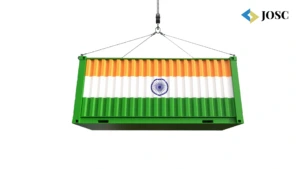India Must Cut Dependence on Import-Based Supply Chainst
India, one of the fastest-growing economies in the world, is heavily reliant on imports for key sectors such as electronics, energy, pharmaceuticals, and raw materials. While globalization has brought significant advantages, India's excessive dependence on import-based supply chains poses economic and strategic risks. To achieve long-term resilience, India must prioritize self-reliance, diversify its supply sources, and strengthen its domestic manufacturing capabilities. The Risks of Import Dependency Economic Vulnerability: Excessive reliance on imports increases exposure to global market fluctuations, currency exchange rates, and geopolitical tensions. Supply chain disruptions, such as those seen during the COVID-19 pandemic, can halt production and lead to inflationary pressures. Trade Deficits: A high import bill contributes to a widening trade deficit, affecting India's foreign exchange reserves and economic stability. National Security Risks: Depending on imports for critical industries like defense and healthcare makes India vulnerable to global supply restrictions and diplomatic challenges. Steps to Reduce Import Dependency Strengthening Domestic Manufacturing The Indian government’s Make in India initiative aims to boost domestic production across various sectors. By providing incentives to industries such as electronics, pharmaceuticals, and textiles, India can reduce its reliance on foreign suppliers. Encouraging local industries through Production Linked Incentive (PLI) schemes will enhance manufacturing competitiveness and attract investments. Supply Chain Diversification India must expand its trade partnerships and seek alternative sources for essential imports. Reducing dependence on a single country for critical supplies—such as China for electronics—will mitigate risks. Strengthening regional trade agreements and building stronger relations with ASEAN, the EU, and African nations can help India secure diversified supply chains. Boosting Infrastructure and Technology Developing robust logistics and transport networks will improve supply chain efficiency and reduce costs. Investing in automation, artificial intelligence, and robotics will enhance India's manufacturing sector and reduce reliance on imported machinery. Encouraging Research & Development (R&D) Increasing investments in domestic R&D and innovation will allow Indian companies to develop indigenous products, reducing the need for imports. Collaboration between academia, industry, and startups will accelerate technological advancements in critical sectors. Fostering MSME Growth Micro, Small, and Medium Enterprises (MSMEs) form the backbone of India's industrial ecosystem. Providing financial aid, tax benefits, and policy support will enable MSMEs to scale production and contribute to import substitution. Reducing India's dependence on import-based supply chains is crucial for achieving economic resilience, job creation, and national security. By investing in domestic manufacturing, diversifying suppliers, and embracing innovation, India can build a self-sufficient and globally competitive economy. The journey towards Atmanirbhar Bharat (self-reliant India) is challenging but necessary for long-term sustainability.






